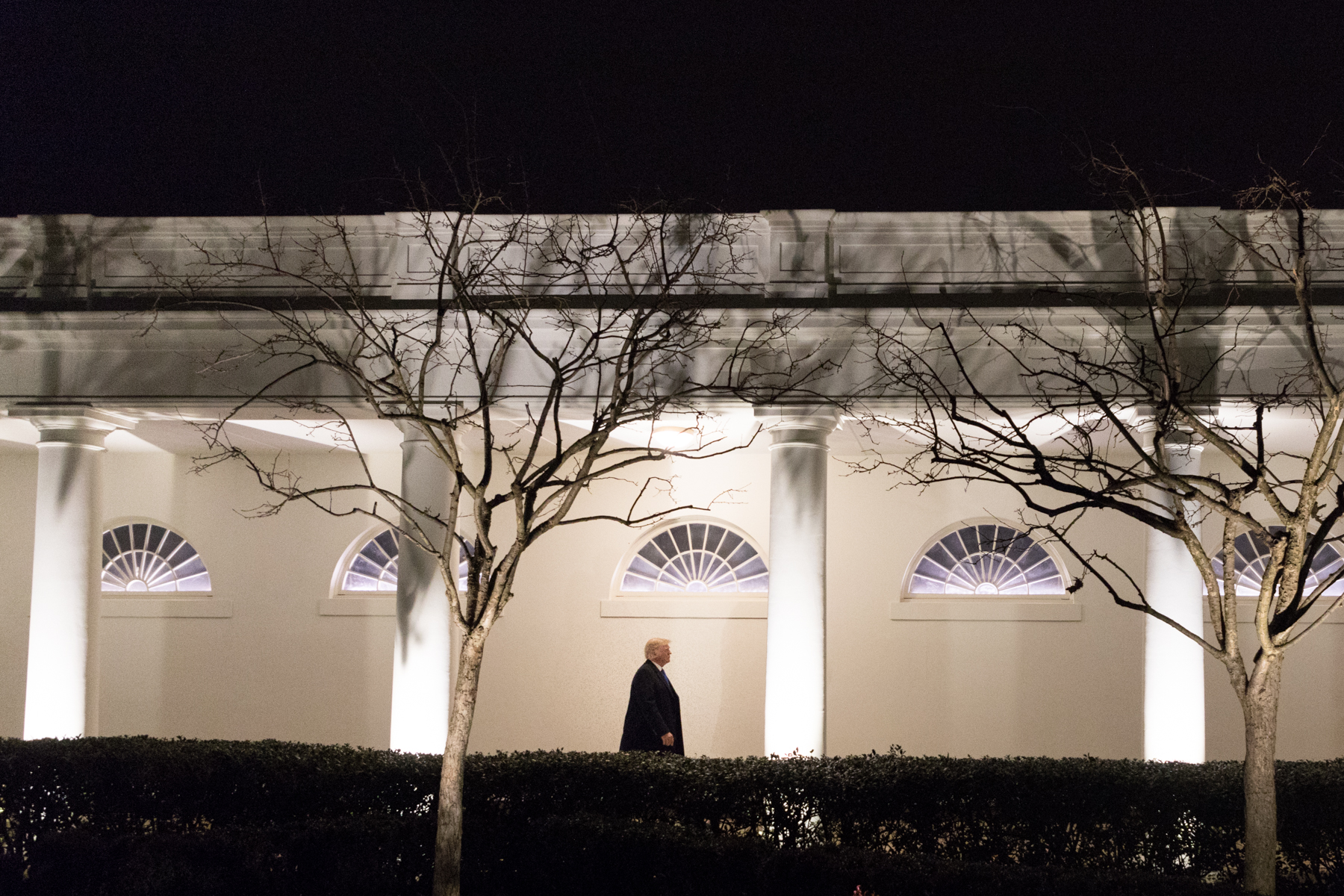POTUS Fight Threatens Rural Broadband Bucks

The smarter way to stay on top of broadcasting and cable industry. Sign up below
You are now subscribed
Your newsletter sign-up was successful
The $40 billion in funding in the Democrats' LIFT America Act infrastructure bill could be at risk in the showdown with President Donald Trump over the Mueller report and ongoing Democratic led investigations into whether the President obstructed justice, an impeachable offense.
The President walked out of a meeting over infrastructure legislation funding Wednesday--the same day the House Energy & Commerce Committee was holding a hearing on the bill --saying he would not negotiate while under investigation by Dems.
The President said he calmly ended meeting, while Dems alternately called it a tantrum and a calculated move. Senate Minority Leader Chuck Schumer (D-N.Y.) called the non-meeting "jaw-dropping."
He said Democrats believed rural and inner-city America needed broadband and that while Democrats were interested in doing infrastructure, "the President isn't." Schumer suggested the President had "run away" when asked to talk about how to pay for that infrastructure.
In an impromptu Rose Garden speech following the aborted infrastructure meeting, the President undertook a rambling defense of his campaign and presidency--"no collusion, no obstruction"--and attack on Democrats and the media before saying Congress can't both legislate investment and investigate him.
He said he told Democratic leaders in the meeting that he wanted to "do infrastructure," but "not under these circumstances," which meant, he said, "these phony investigations." The President said they would only be going down one track at a time, the clear message being that so long as they were investigating, he would not be working with them on infrastructure or drug prices or other issues.
The President later tweeted:
The smarter way to stay on top of broadcasting and cable industry. Sign up below
[embed]https://twitter.com/realDonaldTrump/status/1131243663948959745[/embed]
The LIFT America Act allocates $40 billion over five years to deploy "secure and resilient
broadband" and to "expand access for communities nationwide while promoting security by design."
The majority (three quarters) of the funding will go to deploy to "unserved" areas, which are the mostly rural areas that are a focus of both Democrats and President President Trump, who has tied the issue to helping farmers with high-tech agriculture. The money will be handed out via reverse auction--low bid wins.
The other 25% will go to states to allocate, also through reverse auctions.
If there are no unserved areas in a state, the money can go to deploy broadband underserved, for schools and libraries, or to deploy next-gen 9/11.
One issue that will need to be addressed before that broadband money can be targeted is improving the FCC's data and maps on where broadband is or isn't, a problem both sides of the political aisle acknowledge.
Contributing editor John Eggerton has been an editor and/or writer on media regulation, legislation and policy for over four decades, including covering the FCC, FTC, Congress, the major media trade associations, and the federal courts. In addition to Multichannel News and Broadcasting + Cable, his work has appeared in Radio World, TV Technology, TV Fax, This Week in Consumer Electronics, Variety and the Encyclopedia Britannica.

